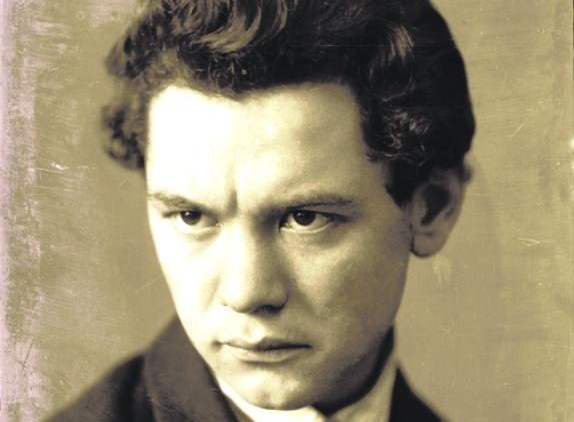Lindsay picked the poem Őrizem a szemedet (I guard your eyes) by Endre Ady, who is regarded as one of the greatest Hungarian poets of the 20th century.Continue reading

Hungarian Poetry Day is traditionally celebrated every year on April 11, the birthday of one of our greatest Hungarian poets, Attila József. Although we have officially celebrated this day since 1964 and associate it with Attila József, people have celebrated Hungarian poets and Hungarian poetry since 1956. Later, the Agitation and Propaganda Department of the Hungarian Socialist Workers’ Party (MSZMP) decided to celebrate the holiday on April 11 at the suggestion of the Hungarian Writers’ Union (Magyar Írók Szövetsége).
This article was originally published on our sister site, Ungarn Heute.
Attila József not only created his own original works, but also worked as a translator. He mainly translated French poems, such as poems by Villon or Apollinaire, but also some from German literature that he dealt with. The poet even met with the world-famous German writer, Thomas Mann. He wrote a poem for the occasion with the title: Thomas Mann üdvözlése (Welcome for Thomas Mann). So he had numerous relations with German literature.
In 1914, he tried to commit suicide after an argument with his sister. In the same year, his mother fell seriously ill. In the meantime, his works were published in the liberal, and at that time, the most important literary magazine of the 20th century, Nyugat. In 1922, his first volume of poetry was published, entitled Szépség koldusa (Beggar of Beauty). His sonnet Éhség (Hunger) was especially perceived as original and quite innovative.
He lived for a year in Vienna, where he first accepted smaller works. Then he was given an opportunity at the Collegium Hungaricum and began teaching there. He returned to Hungary again and again for short periods, but then went to Paris. There he translated Villon and Apollinaire. In January 1937, he welcomed the refugee Thomas Mann to his reading of Lotte in Weimar in Budapest with the poem Wie lange wohl noch steht ein Saal für Dich bereit? (How long do you think there will be a room for you?) In 1937, he was sent to a sanatorium. At the age of 32, he threw himself in front of a freight train in Balatonszárszó.
In January 1937, Thomas Mann, then living in exile in Czechoslovakia as a citizen, arrived in Budapest. In a letter before his arrival, he emphasized, “I can only do this (the trip to Hungary – ed.) for the sake of the young writers who invited me. Their feelings toward me, especially today, mean a great deal.”
The German writer originally read an excerpt from his novel Lotte in Weimar at the former Hungarian National Theater. Originally, Attila József was supposed to greet Thomas Mann with his poem Welcome for Thomas Mann before the writer took the stage, but the censors refused to read his work for political reasons.
The great German writer might have known the poem nevertheless, because Attila József visited him before the reading. Even if we do not know exactly how the great encounter came about, it is certain that Mann was strongly impressed by Attila József. This is clear from a letter he wrote to the Writers’ Union in mid-January 1955 on the occasion of the half-anniversary of the poet’s birth:
Our personal meeting in Budapest, the tenderness and noble modesty of his nature, his pure and passionate idealism have left an unforgettable impression on me.”
József translated numerous German works, such as the Protestant chorale A Mighty Fortress Is Our God by Martin Luther. This song later became the hymn and even the greeting of the Protestant Church. The work is a paraphrase of the Psalm 46. J.S. Bach continued to work musically on this chorale as well (as on all the others). Attila József also translated other chorales, such as the chorale Wachet auf, ruft uns die Stimme (Awake, calls the voice to us) into Hungarian.
Here is the English-language version of the first verse of A Mighty Fortress Is Our God. This is a version of Luther’s poem by Frederic Henry Hedge:
A mighty fortress is our God,
A bulwark never failing:
Our helper He, amid the flood
Of mortal ills prevailing.
For still our ancient foe
Doth seek to work his woe;
His craft and power are great,
And armed with cruel hate,
On earth is not his equal.
The original German version can be read on Wikipedia, here.
Hungarian translation:
Erős vár a mi Istenünk,
Jó fegyverünk és pajzsunk.
Ha ő velünk, ki ellenünk?
Az Úr a mi oltalmunk.
Az ős ellenség
Most is üldöz még,
Nagy a serege,
Csalárdság fegyvere,
Nincs ilyen több a földön.
Translation by József:
Erős vár a mi Istenünk,
Kemény vasunk és vértünk.
Inségben együtt van velünk,
Megvált és harcol értünk.
Kél az ősi rossz,
Bajvető gonosz,
Csel vad fegyvere,
Erőszak ővele,
A földön ő az első.
As you can see, there is a relationship between the Hungarian and German cultures on multiple levels, exactly on the day of Hungarian poetry, and we are talking only about this day…
Featured image: Petőfi Museum of Literature/Petőfi Irodalmi Múzeum via Wikimedia Commons